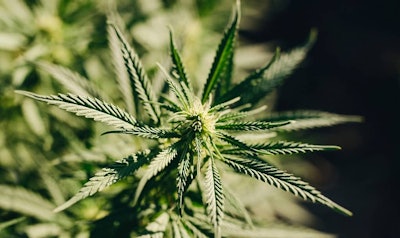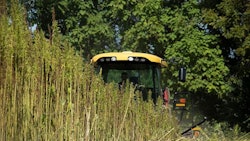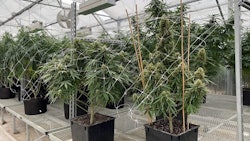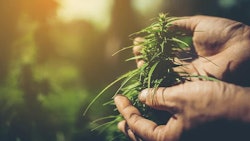
As the New York State Department of Health (DOH) continues to work on proposed hemp and CBD regulations, growers have been communicating with the department about some of the intricacies.
Joy Beckerman, founder and principal of Hemp Ace International, a Hemp Grower Editorial Advisory Board member and a longtime hemp advocate, has been deeply engaged in the development of hemp law and policy in New York state. She opened the Heaven on Earth hemp store in Woodstock, N.Y., in the 1990s.
Beckerman told HG that another public comment period is approaching. “New York needs to implement this, and its stakeholders need for it to be implemented. … Based on shared goals, I'm hopeful that by the end of next week, they will be made available to start that second comment period,” she said Feb. 4.
RELATED: Q&A: Joy Beckerman Talks Hemp's Potential, CBD Popularity and More
Jeanette Miller of Eclectic Farmstead in Newfane, N.Y., and Niagara County vice president of the Niagara County Farm Bureau, told the Niagara Gazette and Lockport Union-Sun & Journal that she opposes some of the proposed hemp and CBD regulations, which stated she has written to DOH. Those news outlets also interviewed Tom Szulist of Singer Farm Naturals in Appleton, N.Y., a former stockbroker who said he didn’t start growing to make money but understood other farmers’ objections.
Miller told the Niagara Gazette that cannabinoid-hemp retailers pay a $300 application fee per location is burdensome for small farmers.
“If I go to five farmers markets, plus have a farm stand on the land, and also sell online, that could be six retail licenses that I have to pay $300 for,” Miller told the Gazette. “That hasn’t been clarified yet.”
In speaking with HG, Beckerman also said the forthcoming regulations’ impact on farmers markets remain to be seen. The same goes for conferences once they pick back up.
Beckerman presented the hypothetical situation of a hemp retailer visiting three farmers markets on a regular basis, explaining: “It’s possible that the Department of Health in the state of New York will take a reasonable approach with a farmer and say, ‘Okay, let’s call this licensed. You’re licensed with your farm name. You’re going to be allowed [to sell hemp]. Thank you for telling us that you travel around to these three farmers markets. You’re allowed to do that.’
“Or, they may say, ‘No! You need a $300 license for each of the three farmers markets.’ That’s very possible. We don’t know yet.”
Miller expressed concern to the Niagara Gazette about the proposed regulations that state growers cannot infuse hemp flower into products themselves but must instead sell it to licensed processors.
“A pound of flower biomass is only being sold at $4, which is disgusting because the processors can take that pound and turn it around to $1,500 or $2,000 after they extract it into a concentrate and then make their own products from it that they can sell,” Miller told the Gazette.
The New York Cannabis Growers & Processors Association also flagged this as a problem in public comments on the proposed regulations.
However, Beckerman said a processor license is required for cannabinoid extraction. She pointed to the state definition passed by the New York State Assembly for “‘Processing of hemp in connection with its growing and cultivation,’” which “means the growing, cultivation, cloning, harvesting, drying, curing, grinding and trimming of hemp plants.”
Regarding smokable flower, she said New York’s DOH, like other departments of health, doesn’t condone smoking, and these products were also banned under the Hemp Agricultural Research Pilot Program.
But that’s not to say that the state should not or will not eventually relax regulations. Beckerman cited the state’s effort to create an Office of Cannabis Management to regulate state-legal, adult-use cannabis once it is legalized. (DOH regulates state-legal medical cannabis.) “When the OCM comes along, then the floodgates, I’m sure, will open,” she said.
Speaking more broadly of the U.S., Beckerman added: “Clearly, [the U.S.] Congress intended to liberate this plant in all of its forms and all of its parts for all of its purposes. There are no questions, ifs, ands or buts about it. So, that’s another reason, of course, why farmers are upset because they’re like, ‘What are you saying? This is a legal crop! If the feds are letting me do it, why aren’t you letting me do it?’ But this is where we’re at as the revolution unfolds.”
























